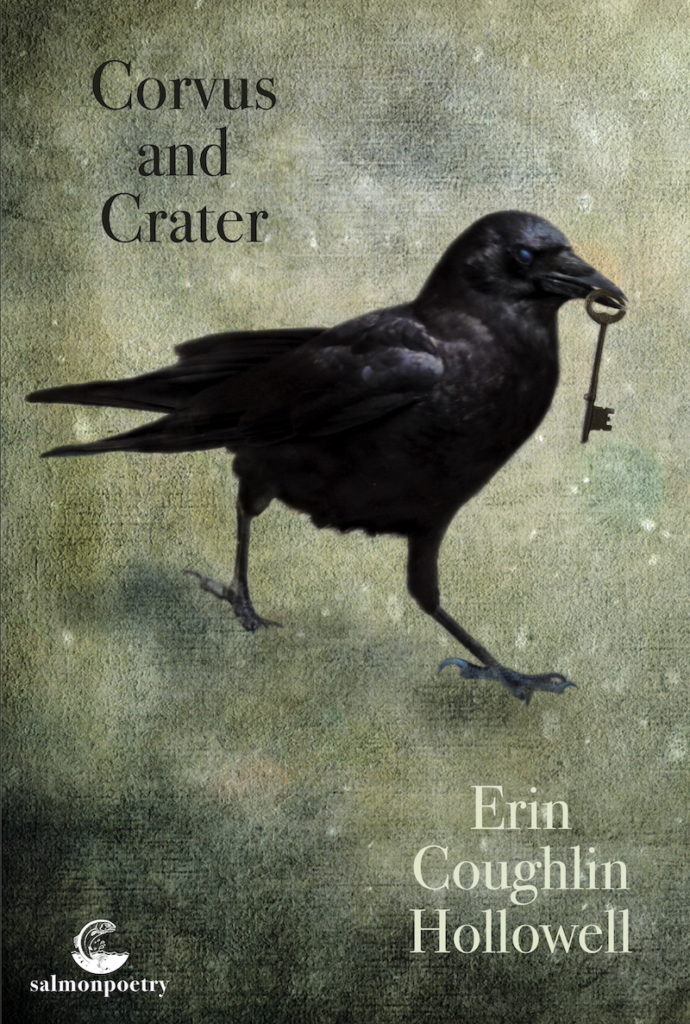
Corvus and Crater, Erin Coughlin Hollowell’s third full-length poetry collection is published by Salmon Poetry.
Each poem in Corvus and Crater is a lens, a tractate, the short alphabet of light, a meditation. Begun from a limitation—54 poems with 54 syllables to commemorate a birthday of the same number—these poems move with raptor focus through the Alaskan landscape. The weather erases, offering a space for the writer—into and away from home, into rituals and remembering, in an attempt to locate. Through brush and into frozen air, Hollowell maps footsteps, water shifts, rivering constellations, and tree limb visitors. These pared down poems are deeply felt. Their vigil will stay on you “Like a blunt print / of a careless god’s thumb.”
~ Lauren Camp, author of Took House and One Hundred Hungers
‘As soon as you begin Erin Coughlin Hollowell’s stunning new collection you know you are in the hands of a poet who’s totally in command of their craft. Born out of the chaos of a personal grief, these multi-layered and highly textured poems delve into the fathomless depths of the collective imagination. Deeply moving, meditative and mysterious, these poems perform the dual-task of invoking numinous, mythic worlds, while achieving a compelling immediacy and rare intimacy. Mixing rich lyricism with economical restraint, each nine-lined poem has the spontaneous flair and brushstroke virtuosity of a Japanese ink-painting.’
~ Adam Wyeth, author of About:Blank and The Art of Dying
In these compressed, keen, meditative poems, Erin Hollowell reveals and queries the world she (and she as Crow) moves through: frosty, peak-rimmed, stitched with wrens and kinglets, spruce and flame. Here, the titles alone are poems: “A box of snapped matches and one burnt nub,” “We once believed in binomials,” “Ritual for summoning the winter circle.” And the poems that follow are wondrously rooted and strange. Comprised entirely of nine-syllable sestets inspired by Charles Wright’s Sestets, a revisitation (and reclaiming) of Ted Hughes’s surly Crow, Hollowell’s poems grow from an Alaskan winter intimately observed by a woman who knows that the physical and the philosophical are never at odds. At once actual, mystical, and science-rooted, the poems of Corvus and Crater are a force against nihilism, seeking what comes in “the absence of absence.”
–Elizabeth Bradfield, author of Toward Antarctica and Once Removed
